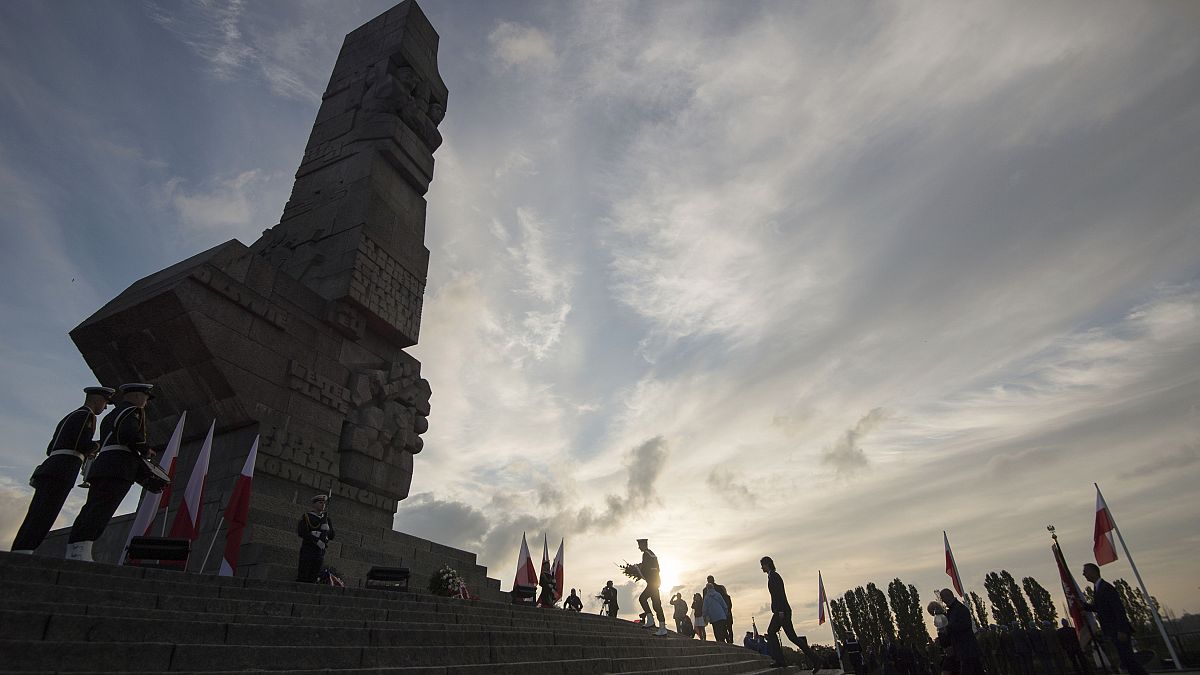The 85th anniversary of Nazi Germany’s invasion of Poland was recently marked with solemn ceremonies led by Polish authorities, highlighting the need for a strong defense amid the war in neighboring Ukraine. The invasion, which occurred on September 1, 1939, resulted in the loss of over 6 million Polish citizens, including 3 million Jews. The town of Wielun, the first civilian target of German bombing, was a focal point of the observances, with President Andrzej Duda emphasizing the importance of remembrance and forgiveness while also calling on Germany to make amends for the atrocities committed during World War II.
Prime Minister Donald Tusk, in a separate ceremony at the Westerplatte peninsula memorial, underscored the ongoing threat of war in the region, particularly in light of the Russian invasion of Ukraine. He emphasized the need for collective defense against aggression and the importance of building a modern and strong military to protect Poland and contribute to the unity of NATO and Europe. Tusk’s government has shifted the focus from demanding significant reparations from Germany to seeking forms of compensation that can strengthen the ties between the two nations.
Poland’s losses during World War II extended beyond its human casualties, with significant damage to its infrastructure, industry, and agriculture. While the previous right-wing government demanded $1.3 trillion in damages from Germany, the current administration led by Tusk has taken a more diplomatic approach in seeking compensation. Germany, however, maintains that the issue of reparations has been settled through payments made to the East Bloc countries after the war, leading to a stalemate in negotiations between the two nations. President Duda reiterated the importance of addressing the issue of compensation for the damage caused during the war, highlighting the unresolved nature of this issue.
The observances and commemorations of the anniversary of Nazi Germany’s invasion of Poland serve as a reminder of the devastating impact of World War II on the country and its people. The ceremonies also underscore the ongoing need for vigilance and preparedness in the face of modern-day threats to peace and security in Europe. By honoring the memory of the past sacrifices and losses while also looking towards a future of cooperation and unity, Poland seeks to strengthen its defenses and build stronger ties with its European neighbors to prevent the recurrence of such atrocities in the future.
As Poland reflects on its history and the legacy of World War II, the nation reaffirms its commitment to peace, security, and the defense of democratic values. The call for reconciliation, forgiveness, and remembrance resonates through the commemorations, urging a collective effort to uphold the lessons learned from the past and to work towards a more peaceful and stable future for all. By acknowledging the past while also looking towards a future of cooperation and unity, Poland aims to honor the memory of the fallen and build a stronger foundation for peace and stability in the region. Through these solemn ceremonies and commemorations, Poland pays tribute to the resilience and sacrifice of its people and reaffirms its unwavering dedication to defending its homeland and contributing to the security of Europe.











